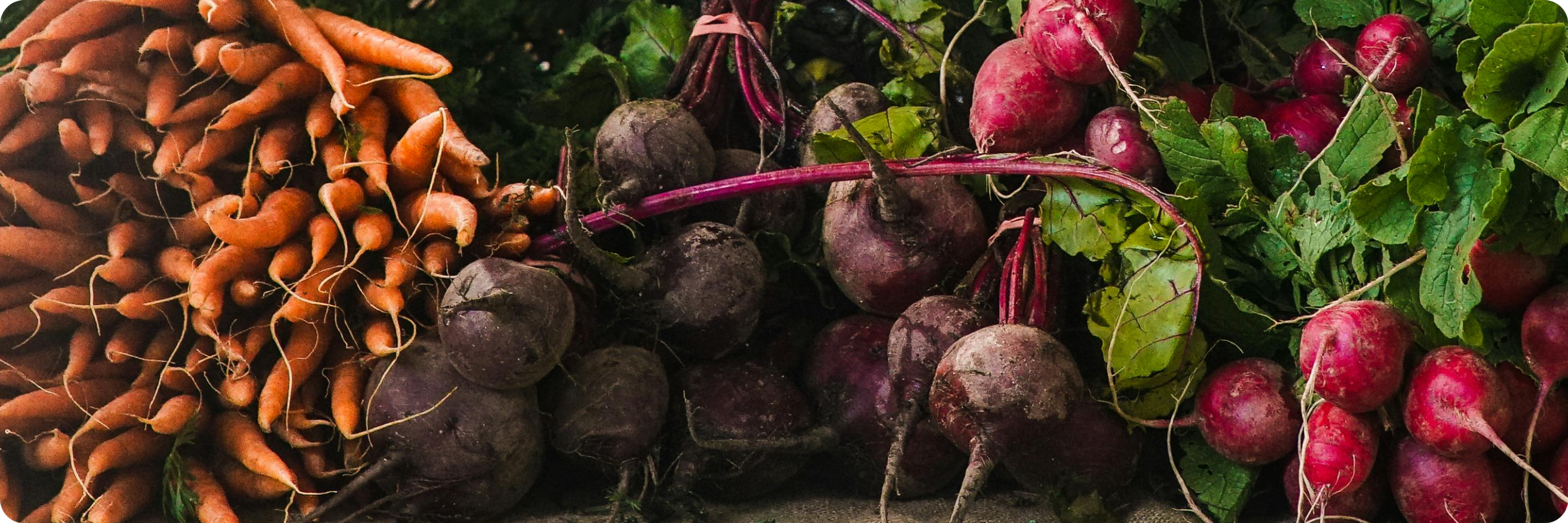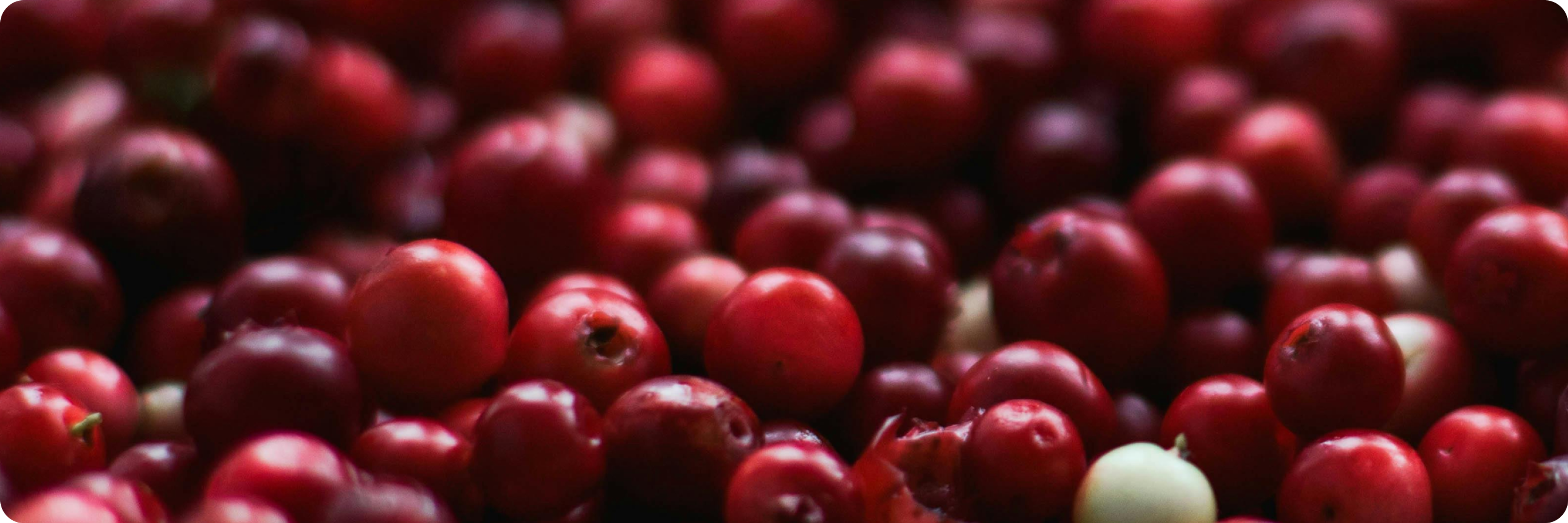Holiday Meals for Longevity
Holiday foods that boost health and longevity? Yes! Learn how seasonal favorites, from poultry to herbs and spices, support wellness and vitality

What to know
Traditional holiday dishes include nutrient-dense ingredients that support longevity.
Protein-rich foods, such as poultry, fish, and plant-based proteins, support muscle and metabolic health.
Seasonal fruits and vegetables are packed with fiber, vitamins, minerals, and longevity-promoting antioxidants.
Warming spices offer nostalgic flavors and deep nutrition with their antioxidant and anti-inflammatory benefits.
Beyond food, gathering with loved ones during the holidays supports mental well-being, reduces stress, and strengthens social bonds, all of which contribute significantly to a healthier, longer life.
The holiday season is a time for celebration, family gatherings, and, of course, delicious food. While it’s easy to think of holiday meals as indulgent and unhealthy, there’s a different perspective worth considering. Many traditional holiday dishes actually feature ingredients that can contribute to a longer, healthier life. Instead of focusing on what to avoid, let’s celebrate the foods that can help us live longer and feel better.
In this blog, we’ll explore longevity-promoting foods that often appear on holiday menus and how you can enjoy them to the fullest.
The Role of Diet in Longevity
It’s well known that diet plays a crucial role in how well—and how long—we live. Research shows that dietary choices can significantly impact the aging process, helping to prevent chronic diseases and support cellular health. In addition to providing essential nutrients needed to make our bodies run properly, the foods we consume directly influence biological mechanisms, such as inflammation, oxidative stress, and metabolic function, which are central to aging and overall vitality.[1]

The Blue Zones, areas across the world where people live well into their hundreds, have gained attention for their health benefits and their populations’ impressive longevity. People in these regions consume plenty of whole foods, like fruits, vegetables, lean proteins, whole grains, and healthy fats and healthy fats.
Fortunately, many of these same ingredients—like colorful vegetables, lean proteins, and antioxidant-rich herbs and spices, show up in our holiday favorites.
Healthy Holiday Proteins
Protein-rich foods are often front and center at holiday meals, bringing both tradition and health benefits to the table. Protein is an essential nutrient for building and repairing tissues, producing enzymes and hormones, and supporting overall growth and development.
Protein is especially valuable when it comes to longevity. It supports muscle health—a key factor in maintaining strength and mobility as we age. Animal protein, specifically, is rich in certain longevity nutrients like creatine and vitamin B12, while plant-based proteins will provide an ample amount of much needed fiber. Moreover, protein can help you feel fuller for longer, reducing the temptation to overindulge during the holiday meal.
Here are a few of our holiday protein favorites:

Poultry
When you think of Thanksgiving dinner, the first thing that comes to mind is likely an oven-roasted turkey with all the fixings. From turkey to chicken to duck or goose, many holiday meals center around poultry. These choices are more than just traditional—they’re also nutrient-dense, lean sources of protein that support muscle health and keep us feeling satisfied.
Poultry offers high-quality protein along with essential nutrients like B vitamins, zinc, and selenium, all of which aid in muscle maintenance, immune function, and cellular repair—key components for healthy aging.[2]
Fish and Seafood
For many Italian families, Christmas Eve is celebrated with the Feast of the Seven Fishes, a tradition rich in flavor and symbolism. But no matter your heritage, including fish on the holiday menu can be an excellent way to add variety, flavor, and nutrition to your meal. Fish and seafood offer lean protein along with anti-inflammatory omega-3 fatty acids, which support cardiovascular health and protect against age-related cognitive decline[3].
Dishes like baked salmon, shrimp cocktail, or even a delicate fish stew bring essential nutrients to the table that align with longevity goals and keep holiday meals light yet satisfying.
Plant-Based Proteins
Eating black-eyed peas on New Year's Day is a tradition rooted in the African American culture and symbolizes good luck and prosperity for the coming year. But these beans, along with other legumes, bring more than just fortune to the holiday table—they’re a powerhouse of nutrition.
Beans and legumes are rich in plant-based protein, fiber, and antioxidants that support cardiovascular, metabolic, and gut health. Just one cup of cooked beans provides up to 15 grams of fiber, along with essential nutrients like folate, phosphorus, and potassium. These nutrient-dense additions to your holiday spread not only enhance flavor but also offer a meaningful boost to your overall health.[4]
Lentil loaves and hearty bean soups and stews are just a few ideas that bring variety to the table while adding nutrients that promote health and longevity.
The Power of Holiday Vegetables
One of the best parts of holiday meals is the abundance of delicious side dishes. Seasonally inspired produce like root vegetables and hearty greens add deep nutritional value to our celebratory meals.

Root Vegetables
Root vegetables like sweet potatoes, carrots, parsnips, and beets bring their earthy, comforting flavors as well as impressive health benefits. These vibrant, nutrient-dense vegetables are rich in fiber, vitamins, and antioxidants that support longevity and overall wellness.
Fiber, a hallmark of root vegetables, promotes digestive health, stabilizes blood sugar, and helps manage cholesterol levels—all important for aging well. In fact, observational studies have consistently linked dietary fiber intake with a lower risk of all causes of mortality.[5]
Aside from fiber, each root vegetable brings unique longevity benefits based on its nutritional makeup. Sweet potatoes and carrots, for example, are high in beta-carotene, a powerful antioxidant that supports immune function, skin health, and vision. [6]Meanwhile, beets are a great source of nitrates, which help improve blood flow and cardiovascular health by supporting healthy blood pressure levels.[7]
Adding root vegetables to your holiday spread is not only a delicious way to enjoy seasonal produce but also a step toward a more balanced, longevity-focused meal.
Leafy Greens
Leafy greens like kale, spinach, Swiss chard, and collard greens are true nutrient powerhouses that add vibrant color, flavor, and health benefits to holiday dishes. These greens are packed with vitamins, minerals, and antioxidants that support long-term health and vitality, making them an essential part of a longevity-focused diet. These foods are staples in Mediterranean and other traditional diets associated with longevity. Research suggests that as little as one serving of leafy greens a day may slow cognitive aging.[8]
Leafy greens are rich in several stand-out nutrients, including their high content of vitamins A, C, and K, which support immune function, skin health, and bone strength. Vitamin K, in particular, plays a crucial role in bone metabolism and cardiovascular health. Greens like spinach and Swiss chard are also rich in magnesium, a mineral that supports muscle and nerve function and helps reduce inflammation. Additionally, leafy greens provide folate, an essential B vitamin needed for cell growth and DNA synthesis.
Adding a leafy green side dish to your holiday menu—whether it’s a fresh salad, sautéed greens, or a colorful casserole—is a delicious way to boost the nutritional value of your meal and support overall health.
Festive Fruits
While winter does not boast the same variety of fresh fruit that we see in the summer, a few seasonal staples show up at our holiday meals.

Cranberries
Cranberries are a quintessential holiday fruit, often making an appearance in sauces, relishes, and desserts. Known for their vibrant red color and tart flavor, cranberries bring more than just visual appeal to the table; they’re packed with potent antioxidants, vitamins, and unique compounds that promote health and longevity.
Cranberries are a powerhouse of antioxidants, especially polyphenols, which combat oxidative stress—a key driver of aging and chronic diseases. The high antioxidant content in cranberries has been shown to reduce inflammation, support immune function, and protect cells from damage caused by free radicals.[9] Including cranberries in your diet during the holiday season can provide a flavorful boost to your body’s natural defenses.
Pomegranate
The vibrant garnet color of pomegranates makes them a perfect holiday fruit. Their seeds, often incorporated into salads and desserts or used as a decorative garnish, bring both flavor and visual appeal to holiday spreads. Beyond their taste, pomegranates are a powerful longevity food due to their high polyphenol content, particularly ellagitannins.
When consumed, these ellagitannins are converted by the gut microbiome into Urolithin A, a beneficial postbiotic. Urolithin A has been shown to support mitochondrial health by promoting mitophagy—a process that recycles damaged mitochondria, helping cells function better.[10]
While pomegranates offer a host of health benefits, when it comes to the benefits of Urolithin A, relying on diet is not usually enough. Studies have shown that only ⅓ of the population has the right gut microbiome to make Urolithin A. And even for those who can make it, they likely aren’t eating enough pomegranates (or other dietary precursors) to gain the benefits seen with direct supplementation.[11]
Mitopure® is the first clinically tested Urolithin A supplement on the market, and studies have demonstrated its ability to increase cellular energy[12] as well as improvements in muscle strength and endurance.[13]

Mitopure Softgels
Bestseller4.4 · 2884 reviews
The simplest form of Mitopure
Citrus Fruits
Citrus fruits, such as oranges, grapefruits, and tangerines, are commonly enjoyed during the winter months, providing a refreshing balance to richer holiday dishes. These fruits are packed with vitamin C, a powerful antioxidant that supports immune health and skin vitality. Vitamin C plays a vital role in collagen synthesis, helping to maintain skin elasticity and protect against oxidative stress. Citrus fruits are also rich in flavonoids, which have been shown to support heart health by improving blood vessel function and reducing inflammation.[14]
Including a citrus salad or zesting orange and lemon peel into dishes can enhance both the flavor and nutritional profile of holiday meals.
Warming Herbs and Spices
In addition to providing rich, comforting flavors, holiday spices are packed with beneficial compounds that support longevity and overall wellness. Herbs and spices have been used both for their culinary benefits and medicinal properties for centuries. Everyday research is recognizing the impact of the bioactive components inside these flavor enhancers, including potent antioxidant and anti-inflammatory benefits, and the warming spices used in holiday cooking are no expedition.[15]

Cinnamon
Known for its warm, sweet flavor, cinnamon is a holiday favorite used in everything from baked goods to hot drinks. Cinnamon is widely recognized for its potential to help stabilize blood sugar levels and promote cardiovascular health.[16]
Cloves
From warm apple cider to pumpkin spice, cloves are a staple in holiday traditions. With powerful anti-inflammatory and antioxidant properties, cloves may help combat oxidative stress, a significant factor in the aging process. Ongoing research is exploring how eugenol, the polyphenol found in cloves, may offer various health benefits, including support for liver function, digestion, and heart health.[17]
Ginger
Ginger, a warming spice often used in holiday treats like gingerbread and spiced drinks, offers more than just flavor—it’s packed with health benefits that make it a powerful addition to any meal. Known for its anti-inflammatory and antioxidant properties, ginger has been shown to aid digestion, reduce nausea, and support immune health. Its active compounds, such as gingerol, have been studied for their potential to reduce oxidative stress and inflammation, which are key factors in aging and chronic disease.[18]
Incorporating these herbs and spices into your holiday cooking not only enhances flavor but also provides your body with natural compounds that contribute to a healthier, longer life.
Community and Connection: The Best Ingredient for Longevity
While the food on our holiday tables plays an important role in supporting longevity, so does the community we share it with. Gathering with friends, family, and loved ones offers emotional and psychological benefits that can significantly impact our overall health. Studies suggest that strong social ties improve mental well-being, lower stress levels, and even boost immune function—all of which support a longer, healthier life.
Celebrating with others brings us joy, reduces stress, and strengthens bonds that are essential for well-being. As we enjoy the longevity-promoting foods on our plates, let’s also appreciate the warmth and connection that make holiday gatherings so special. After all, a strong community is as essential to health and longevity as any nutrient or superfood on the table.
Authors

Written by
Senior Manager of Nutrition Affairs
References
- ↑
Yeung SSY, Kwan M, Woo J. Healthy Diet for Healthy Aging. Nutrients. 2021;13(12):4310. doi:10.3390/nu13124310
- ↑
Marangoni F, Corsello G, Cricelli C, et al. Role of poultry meat in a balanced diet aimed at maintaining health and wellbeing: an Italian consensus document. Food Nutr Res. 2015;59:10.3402/fnr.v59.27606. doi:10.3402/fnr.v59.27606
- ↑
Office of Dietary Supplements - Omega-3 Fatty Acids. Accessed April 1, 2024. https://ods.od.nih.gov/factsheets/Omega3FattyAcids-HealthProfessional/
- ↑
Mullins AP, Arjmandi BH. Health Benefits of Plant-Based Nutrition: Focus on Beans in Cardiometabolic Diseases. Nutrients. 2021;13(2):519. doi:10.3390/nu13020519
- ↑
Ramezani F, Pourghazi F, Eslami M, et al. Dietary fiber intake and all-cause and cause-specific mortality: An updated systematic review and meta-analysis of prospective cohort studies. Clin Nutr. 2024;43(1):65-83. doi:10.1016/j.clnu.2023.11.005
- ↑
Eggersdorfer M, Wyss A. Carotenoids in human nutrition and health. Arch Biochem Biophys. 2018 Aug 15;652:18-26. doi: 10.1016/j.abb.2018.06.001. Epub 2018 Jun 6. PMID: 29885291.
- ↑
Zamani H, de Joode MEJR, Hossein IJ, Henckens NFT, Guggeis MA, Berends JE, de Kok TMCM, van Breda SGJ. The benefits and risks of beetroot juice consumption: a systematic review. Crit Rev Food Sci Nutr. 2021;61(5):788-804. doi: 10.1080/10408398.2020.1746629. Epub 2020 Apr 15. PMID: 32292042.
- ↑
Morris MC, Wang Y, Barnes LL, Bennett DA, Dawson-Hughes B, Booth SL. Nutrients and bioactives in green leafy vegetables and cognitive decline: Prospective study. Neurology. 2018;90(3):e214-e222. doi:10.1212/WNL.0000000000004815
- ↑
Nemzer BV, Al-Taher F, Yashin A, Revelsky I, Yashin Y. Cranberry: Chemical Composition, Antioxidant Activity and Impact on Human Health: Overview. Mol Basel Switz. 2022;27(5):1503. doi:10.3390/molecules27051503
- ↑
D’Amico D, Andreux PA, Valdés P, Singh A, Rinsch C, Auwerx J. Impact of the Natural Compound Urolithin A on Health, Disease, and Aging. Trends Mol Med. 2021;27(7):687-699. doi:10.1016/j.molmed.2021.04.009
- ↑
Singh, A., D’Amico, D., Andreux, P.A. et al. Direct supplementation with Urolithin A overcomes limitations of dietary exposure and gut microbiome variability in healthy adults to achieve consistent levels across the population. Eur J Clin Nutr 76, 297–308 (2022). https://doi.org/10.1038/s41430-021-00950-1
- ↑
Liu S, D’Amico D, Shankland E, et al. Effect of Urolithin A Supplementation on Muscle Endurance and Mitochondrial Health in Older Adults: A Randomized Clinical Trial. JAMA Netw Open. 2022;5(1):e2144279. doi:10.1001/jamanetworkopen.2021.44279
- ↑
Singh A, D’Amico D, Andreux PA, et al. Urolithin A improves muscle strength, exercise performance, and biomarkers of mitochondrial health in a randomized trial in middle-aged adults. Cell Rep Med. 2022;3(5). doi:10.1016/j.xcrm.2022.100633
- ↑
Borghi SM, Pavanelli WR. Antioxidant Compounds and Health Benefits of Citrus Fruits. Antioxidants. 2023;12(8):1526. doi:10.3390/antiox12081526
- ↑
Jiang TA. Health Benefits of Culinary Herbs and Spices. J AOAC Int. 2019;102(2):395-411. doi:10.5740/jaoacint.18-0418
- ↑
Gruenwald J, Freder J, Armbruester N. Cinnamon and health. Crit Rev Food Sci Nutr. 2010 Oct;50(9):822-34. doi: 10.1080/10408390902773052. PMID: 20924865.
- ↑
Nisar MF, Khadim M, Rafiq M, Chen J, Yang Y, Wan CC. Pharmacological Properties and Health Benefits of Eugenol: A Comprehensive Review. Oxid Med Cell Longev. 2021;2021:2497354. doi:10.1155/2021/2497354
- ↑
Baptista BG, Ribeiro M, Cardozo LF, Leal V de O, Regis B, Mafra D. Nutritional benefits of ginger for patients with non-communicable diseases. Clin Nutr ESPEN. 2022;49:1-16. doi:10.1016/j.clnesp.2022.04.017







